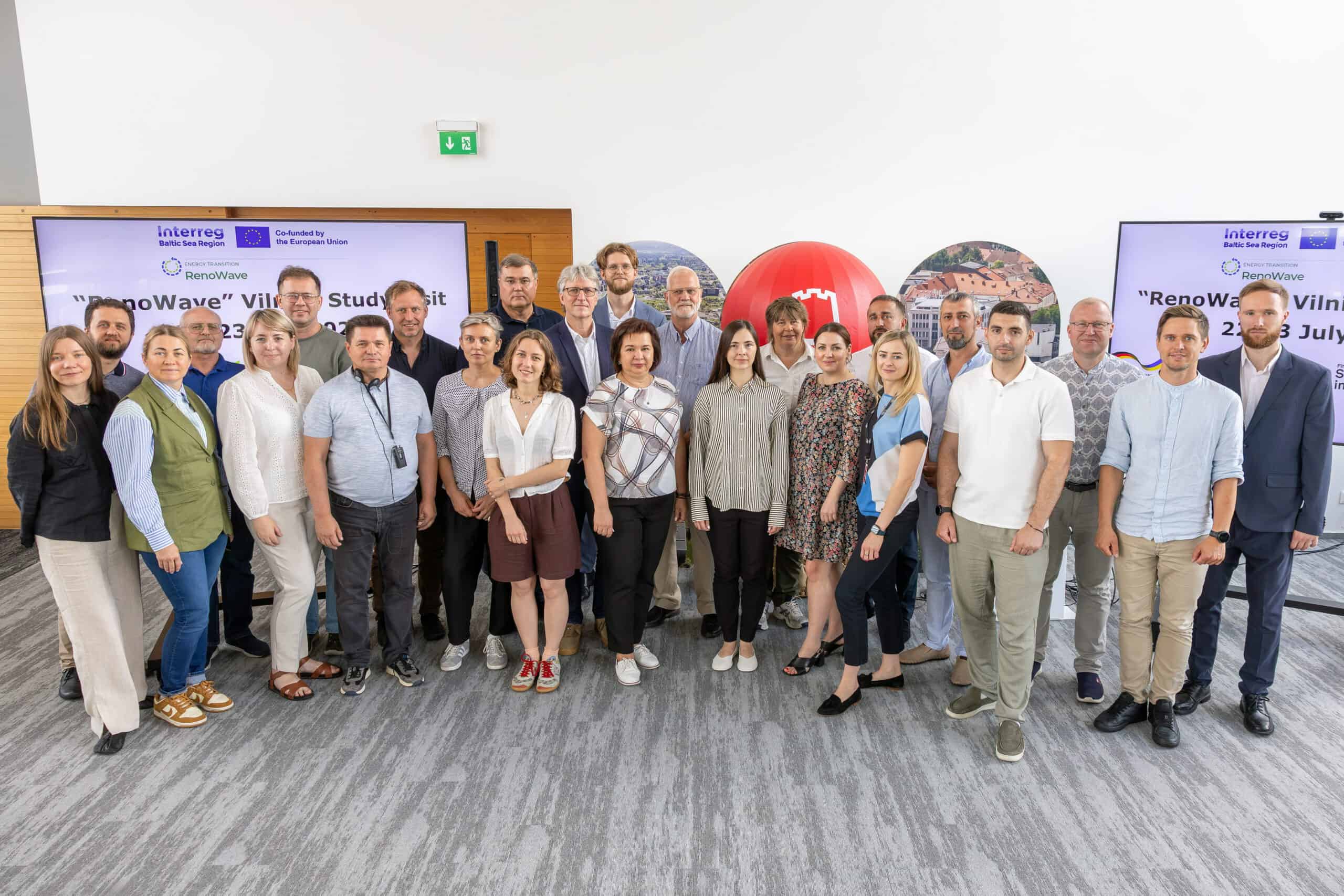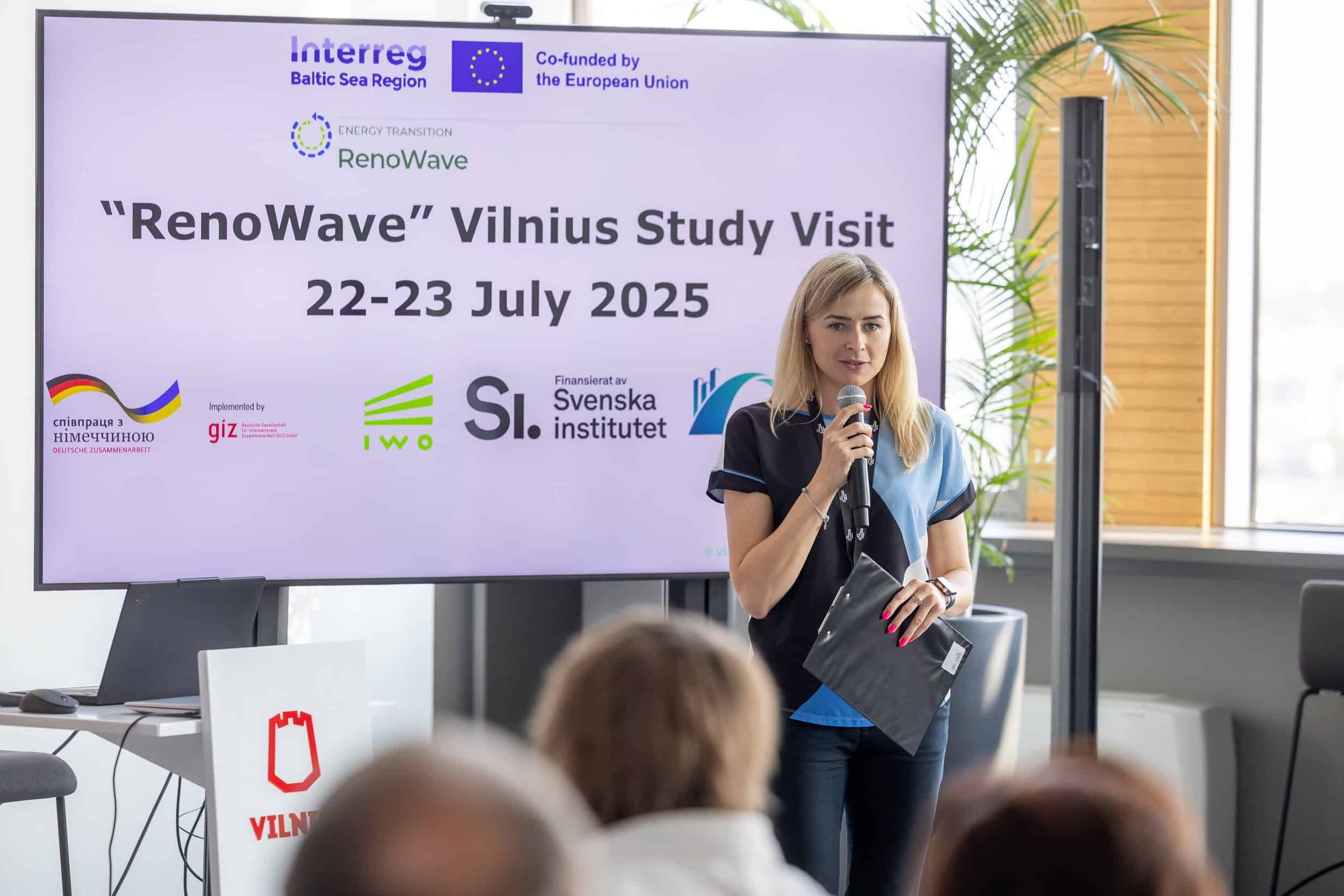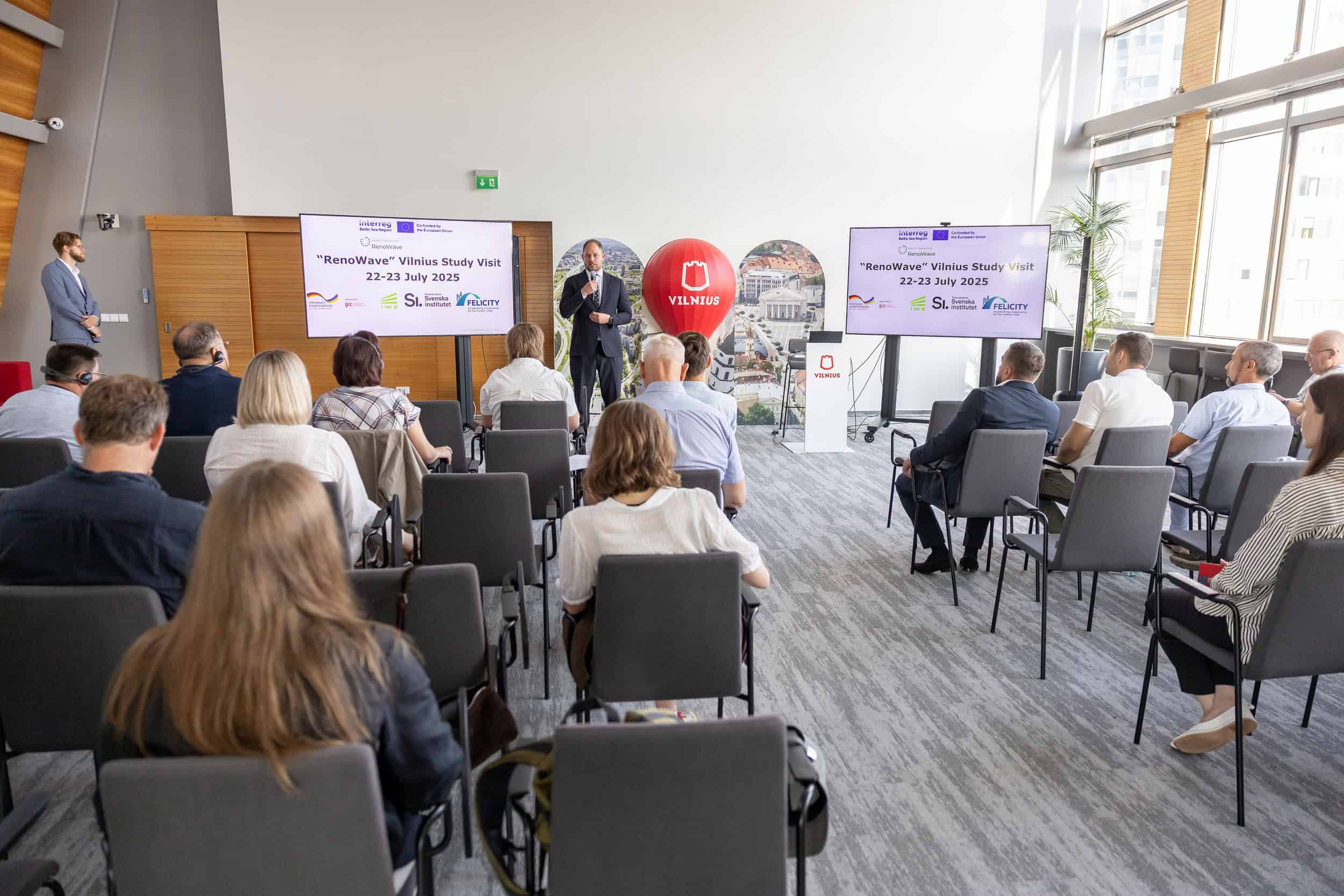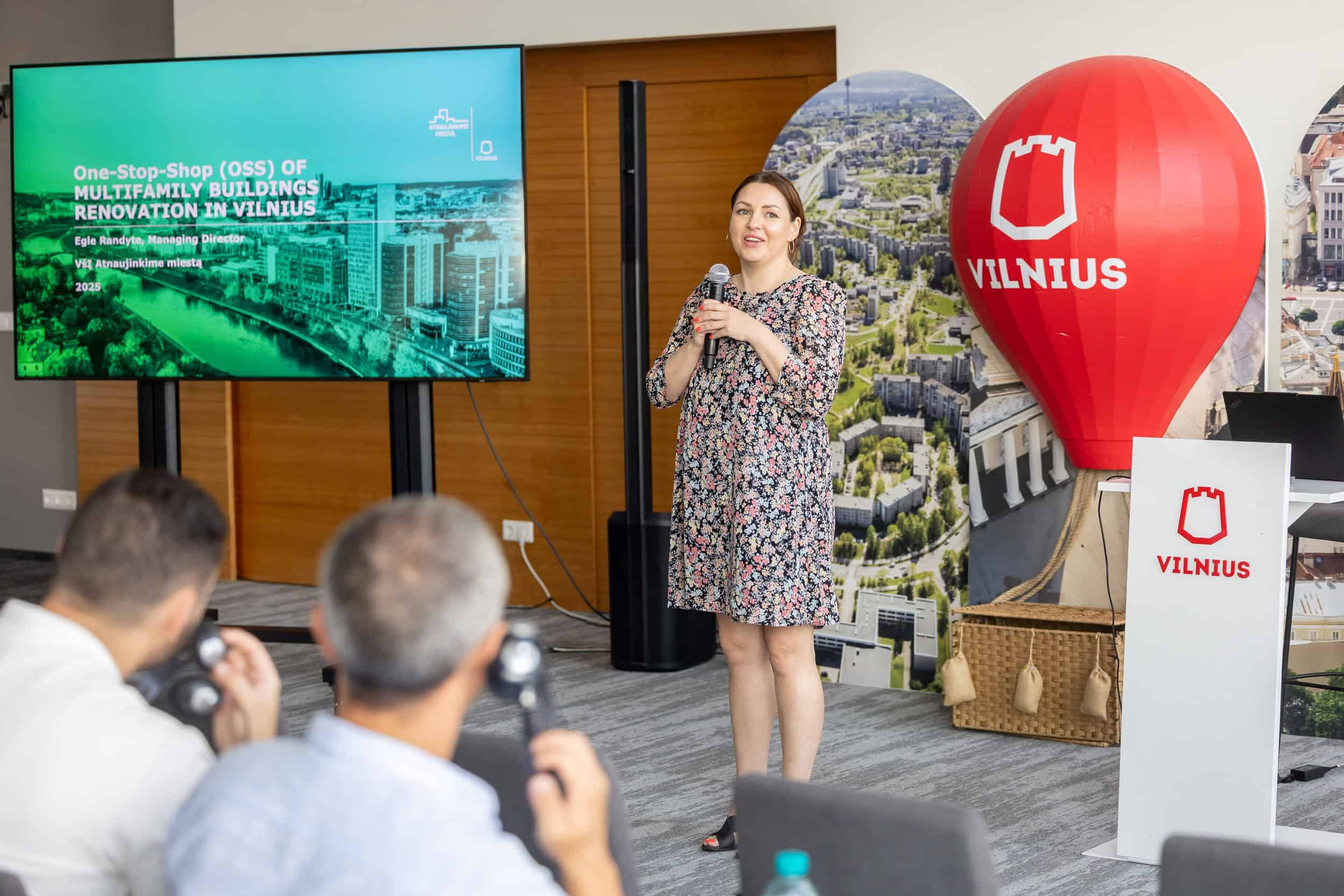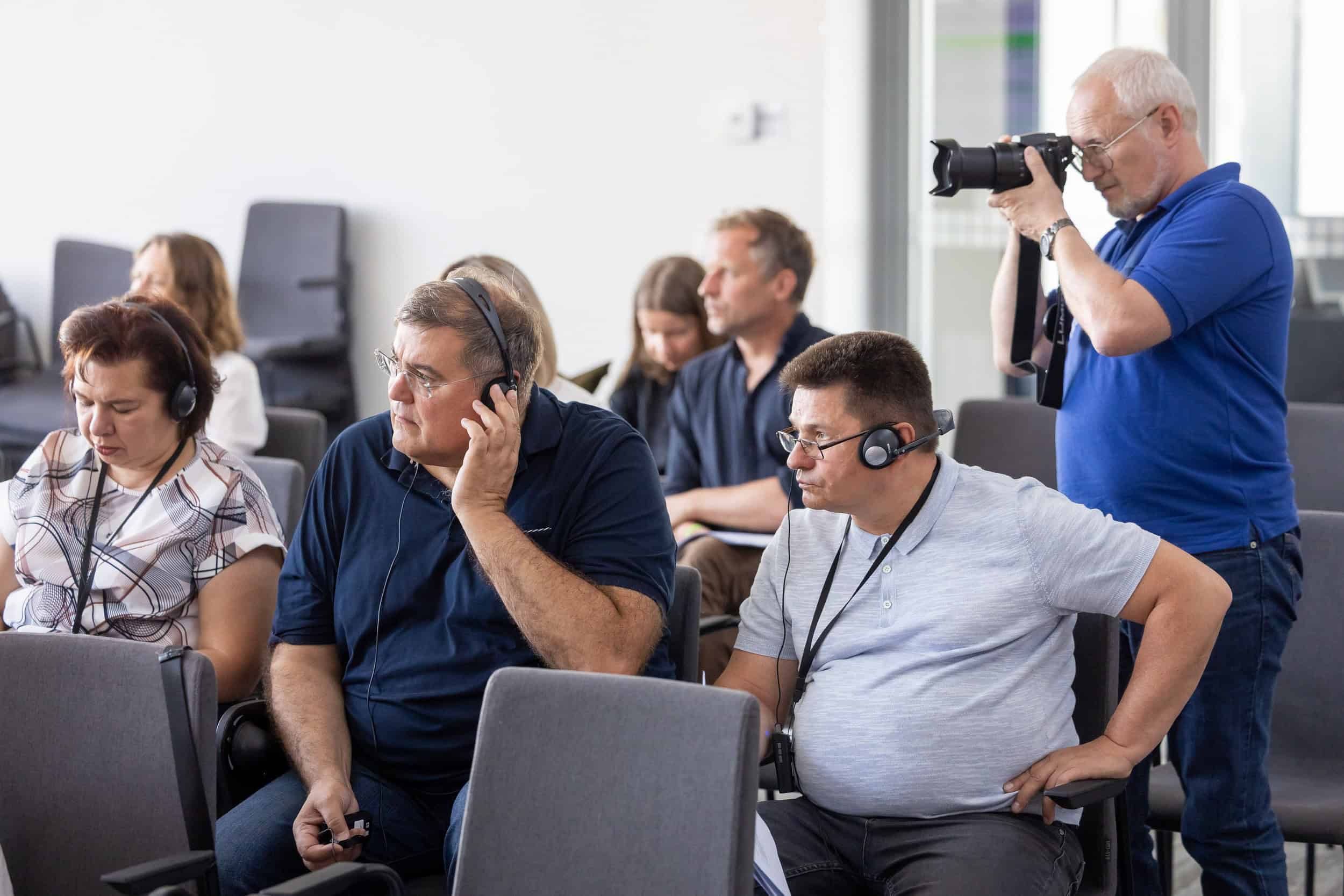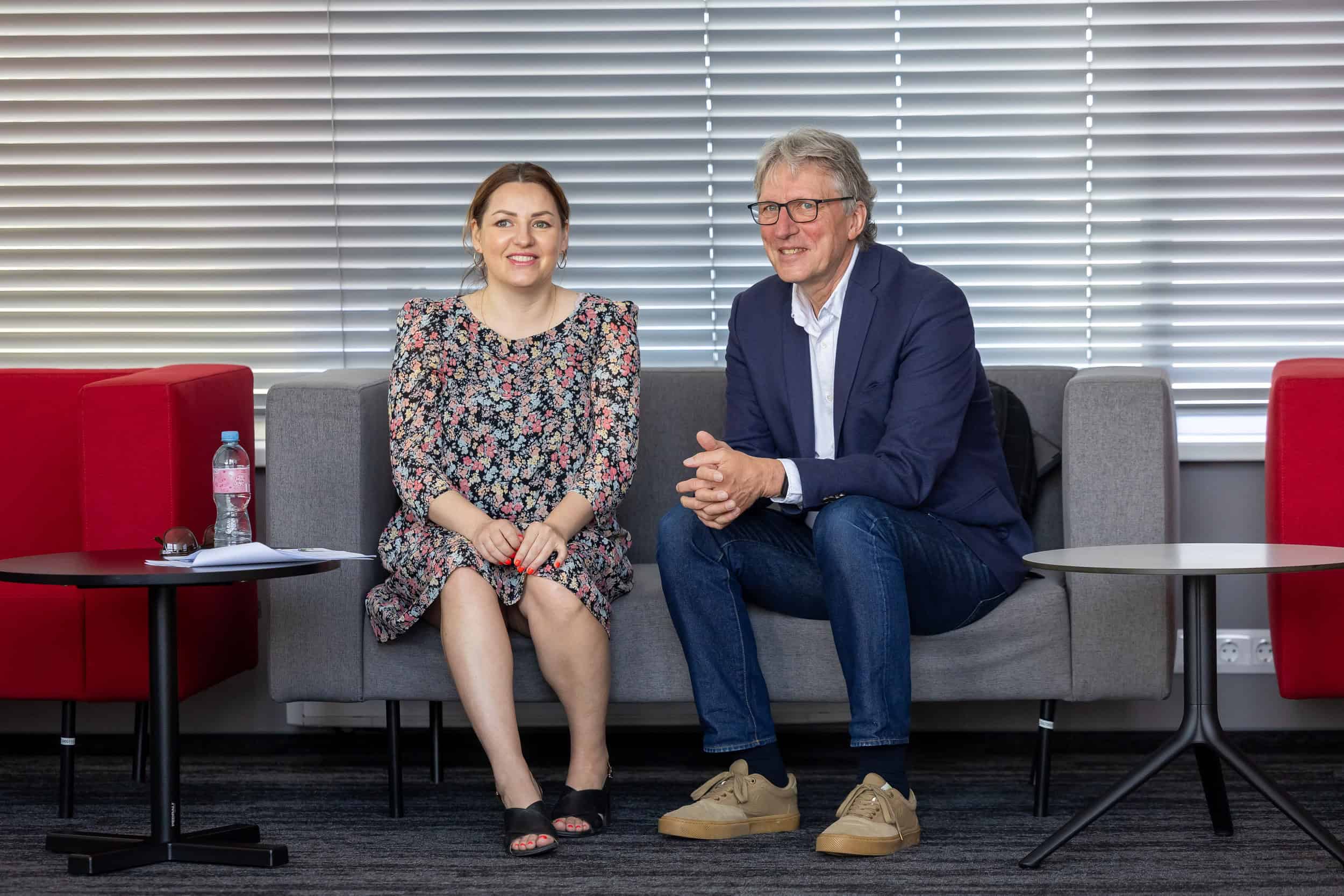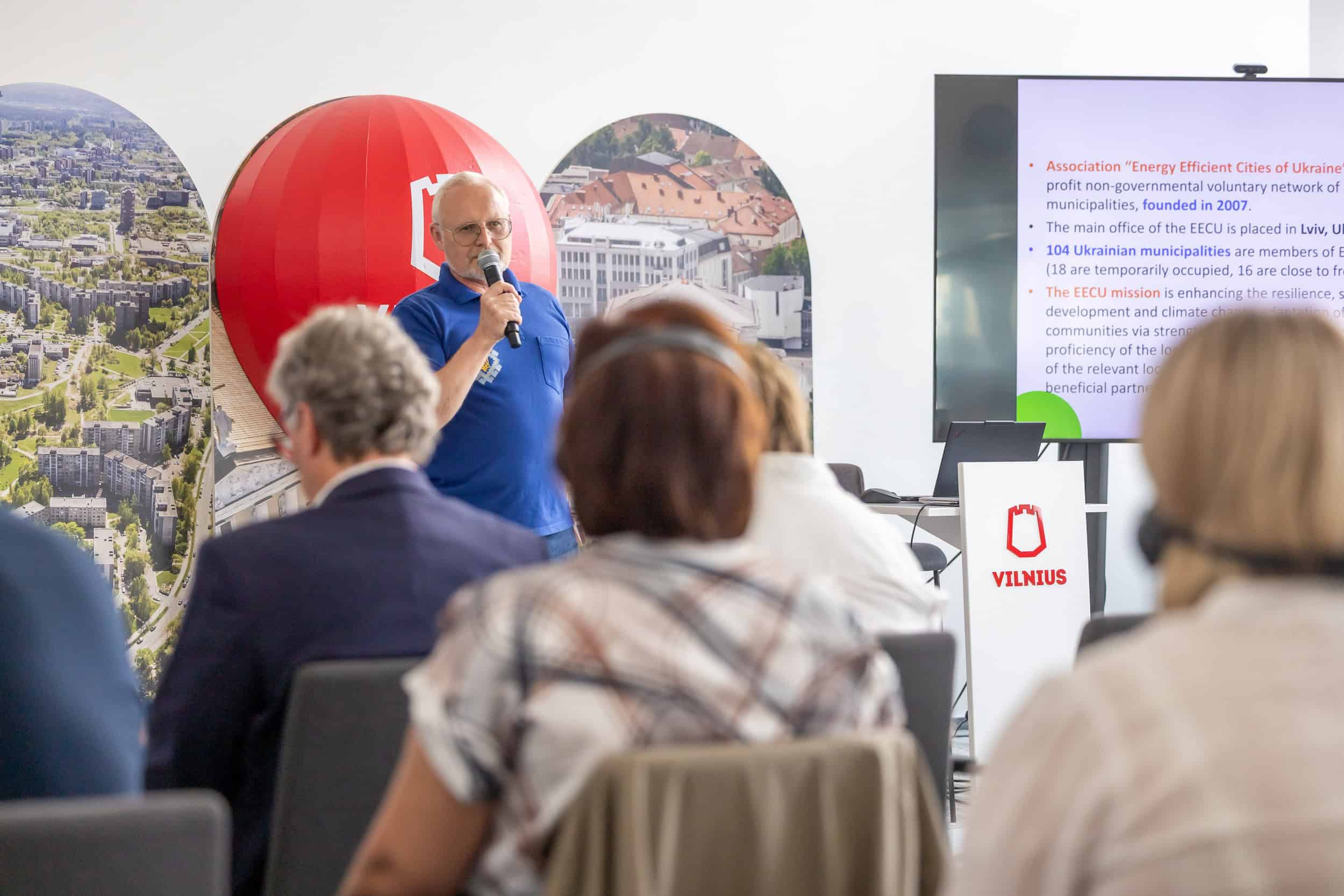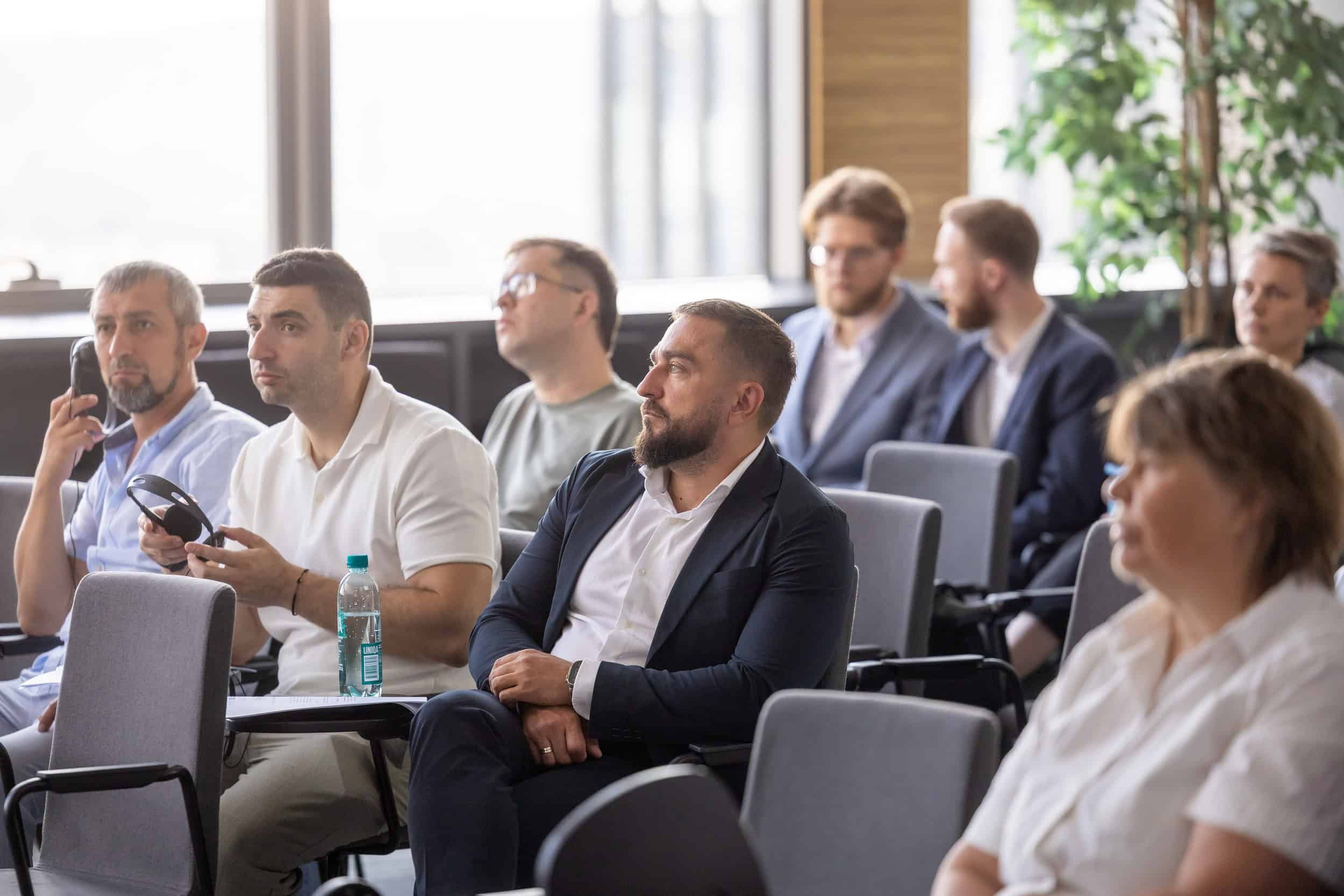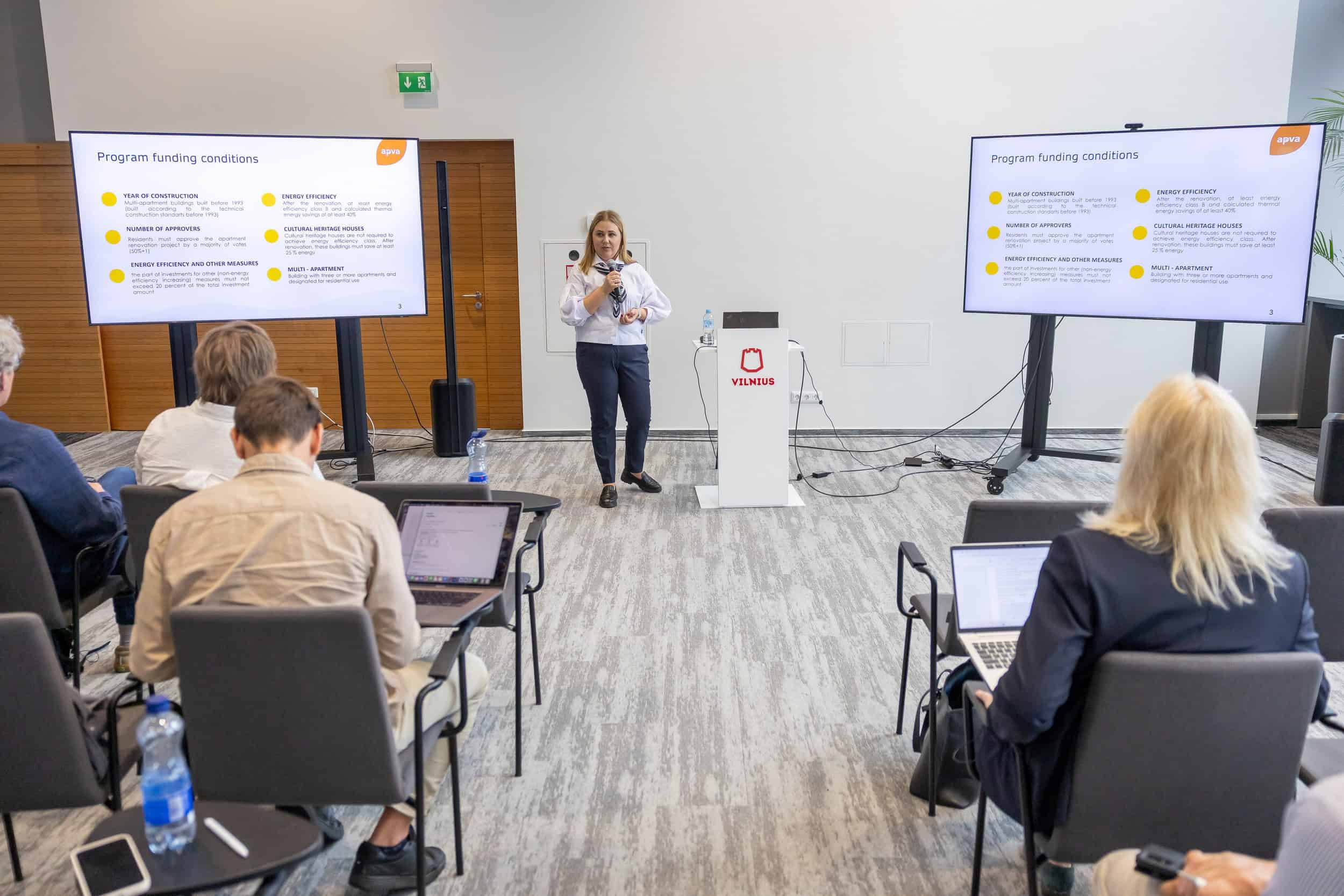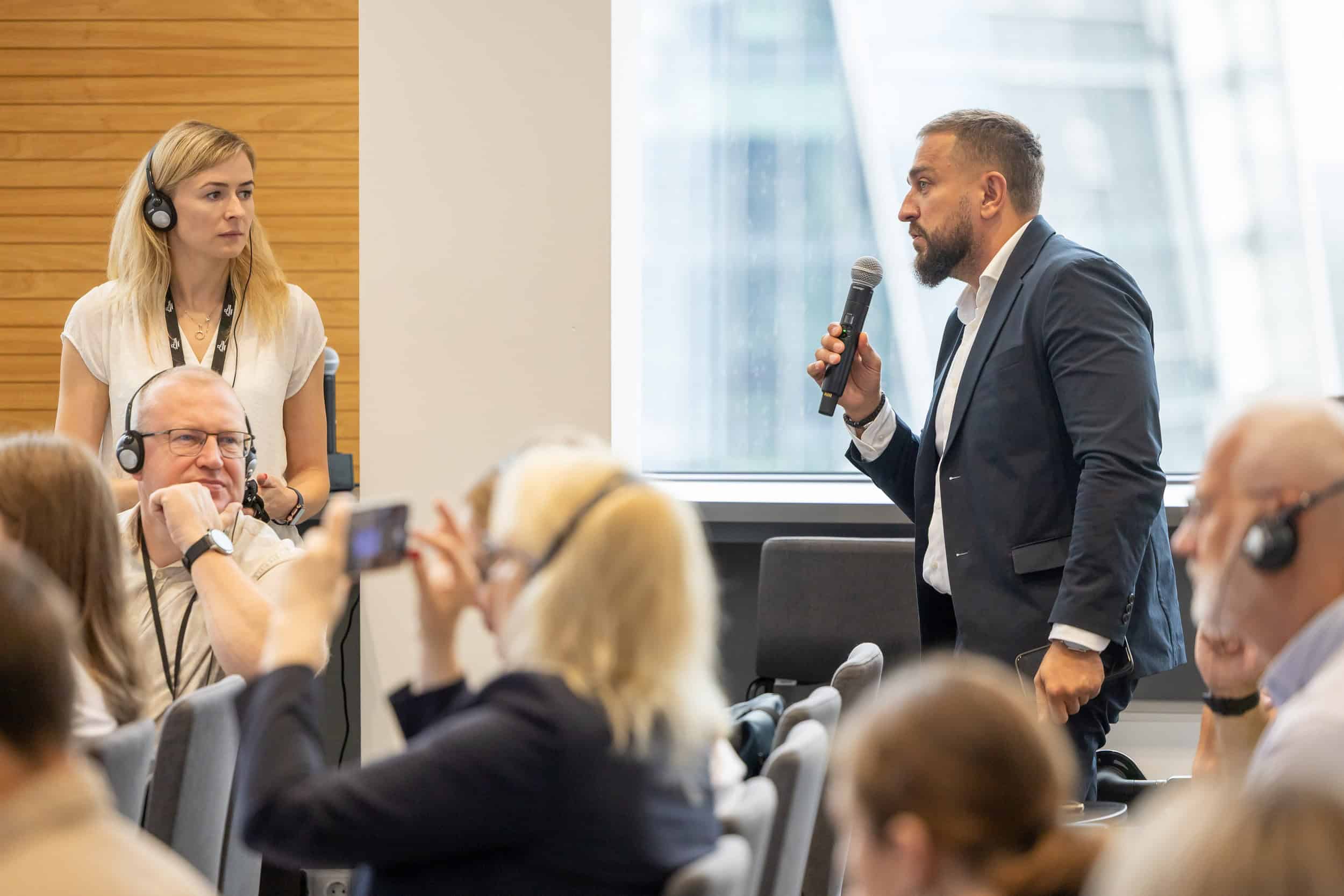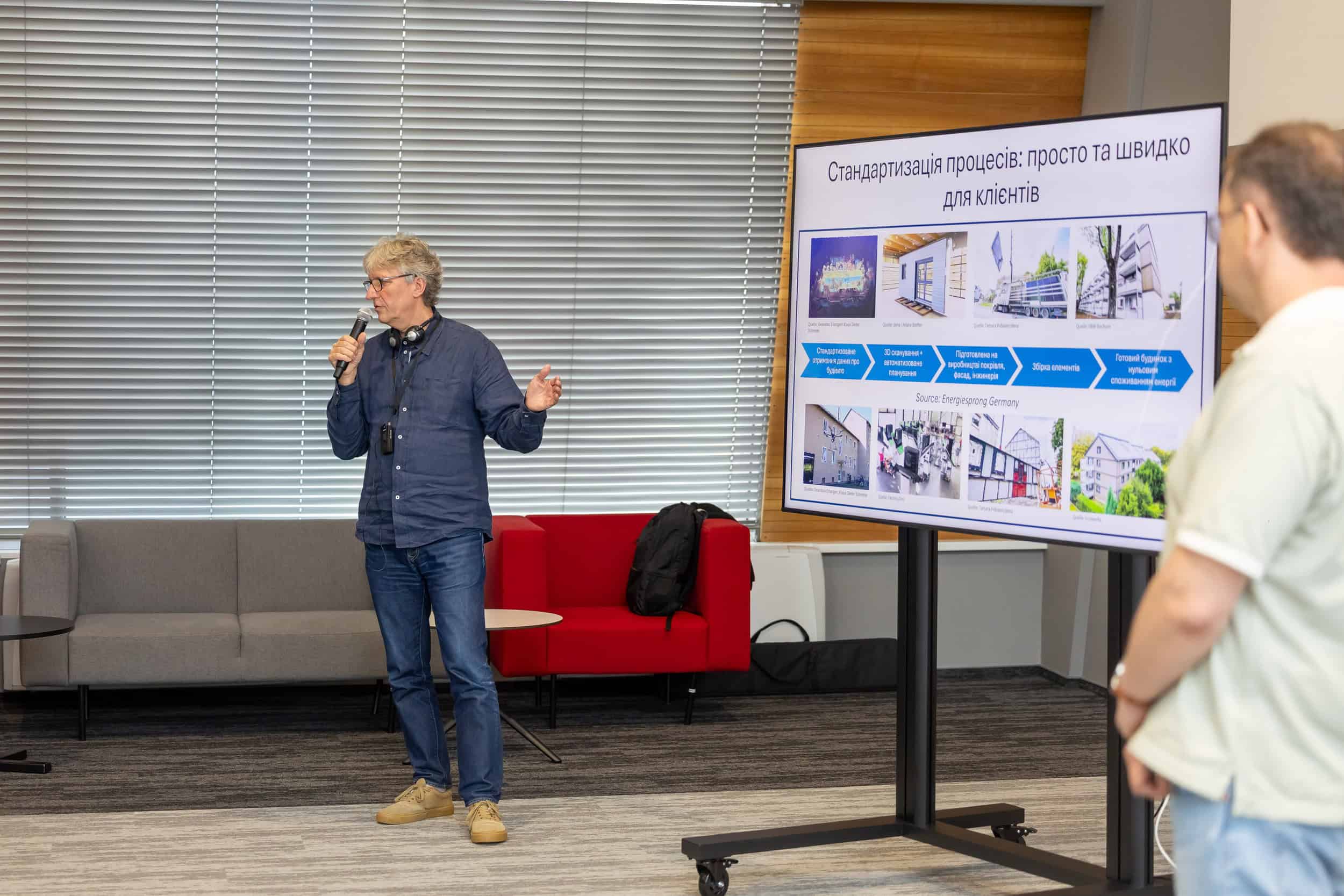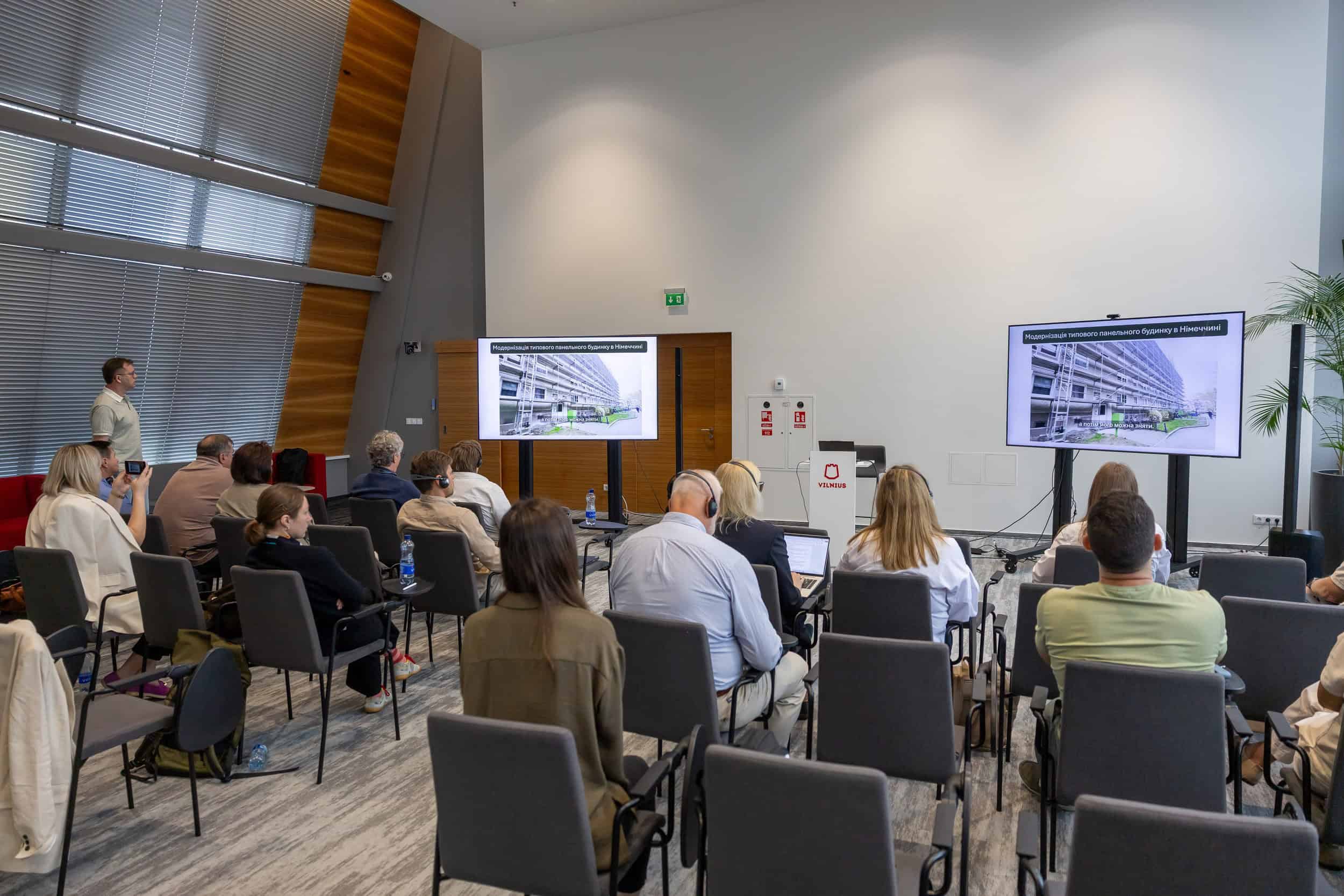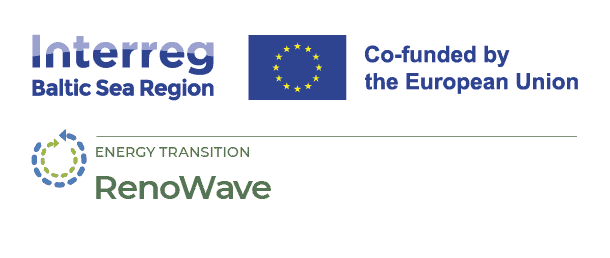
Representatives of Ukrainian Cities Show Interest in Vilnius ’Apartment Building Renovation Model
04 August 2025
On July 22–23, representatives of three Ukrainian cities – Lviv, Mykolaiv, and Kryvyi Rih – visited Vilnius, along with project partners from Sweden, Germany, Estonia, and Latvia. The purpose of the visit was to get acquainted with Vilnius ’successful apartment building renovation model and adopt best practices. The visit was made possible by the RenoWave project, funded by the European Union’s Interreg programme. Project partners from Sweden, Germany, Estonia, and Latvia joined the Ukrainian delegation in Vilnius.
The first day began with an introduction to Atnaujinkime miestą (“Let’s Renovate the City”), the institution that coordinated the visit and presented the overall context of renovation in Vilnius. The public institution was established by Vilnius City Municipality and has been operating for several years under the “one-stop-shop” model – coordinating the renovation process from beginning to end and serving as a partner and intermediary between residents, institutions, contractors, and financiers.
“Our key success factors are strong support from the Vilnius City Municipality and a professional team that helps residents make renovation decisions and manage the entire process,” said Eglė Randytė, Head of Atnaujinkime miestą. According to her, the organization encourages Vilnius residents to invest in the renewal of their homes and has already attracted over €250 million in investment.
Although Ukraine is currently facing enormous challenges due to the war, like Lithuania, it has “inherited” a vast stock of Soviet-era apartment buildings, where the majority of urban populations live. Representatives of the Ukrainian delegation emphasized that despite the ongoing war, these mostly Soviet-built apartment blocks also require urgent attention. Renovation is becoming particularly relevant not only for rebuilding destroyed structures but also for creating a sustainable and energy-efficient future for Ukraine.
The second day of the visit focused on prefabricated (panel) renovation – a method taking its first steps in Lithuania. Experiences and lessons learned in applying this renovation method were shared by Knut Hoeller, a board member of the German organization IWO (Initiative Wohnungswirtschaft Osteuropa / Housing Initiative for Eastern Europe). Aušra Bartkevičienė, Head of the Apartment Building Modernization Projects Division at the Environmental Project Management Agency of Lithuania (APVA), also shared Lithuanian best practices. Presentations were followed by discussions on various renovation-related topics and hands-on group work sessions moderated by experts from Sweden and Germany
Apartment building renovation has accelerated rapidly in Vilnius in recent years, so both international experts and guests from Ukraine were eager to see what newly renovated buildings look like in practice. In Žirmūnai – one of Vilnius’“leading districts” in terms of the number of renovated buildings – the delegation, guided by project managers from
Atnaujinkime miestą, visited several apartment buildings on Tuskulėnų and Apkasų streets. Each required different architectural and technical solutions. The delegation, particularly interested in public building renovation, was also shown the Antakalnis outpatient clinic, where part of the facility has already been renovated, while other sections are still awaiting upgrades.
To understand how many apartment buildings in Vilnius still await renovation, guests were taken to the city’s highest observation point – the Vilnius TV Tower. This was also an opportunity to witness the vast greenery of the Lithuanian capital – no coincidence that Vilnius has been named the European Green Capital 2025. The visit also included a stop at the Vilnius Combined Heat and Power Plant, where non-recyclable and non-reusable waste is transformed into fuel for electricity and district heating.
The delegation from Ukraine concluded their visit with a trip to Birštonas – a smaller Lithuanian city with resort status – to learn how renovation efforts are progressing there.
RenoWave is a Europe-wide project aimed at supporting the renovation of the apartment building stock in the Baltic Sea Region. It seeks to provide partner countries with useful ideas, tools, and proven models. RenoWave is developing a One-Stop-Shop business model system, which aims to strengthen partnerships among stakeholders involved in apartment building renovation. These systems are being developed with respect to national needs and each country’s capacity for implementation. Vilnius has become a leading European example of how effectively the one-stop-shop model can be implemented and applied.
Information prepared by Jurga Vaičiūtė, Communication and Marketing Project Manager, Atnaujinkime miestą (“Let’s Renovate the City”)
Photo author Saulius Žiūra






